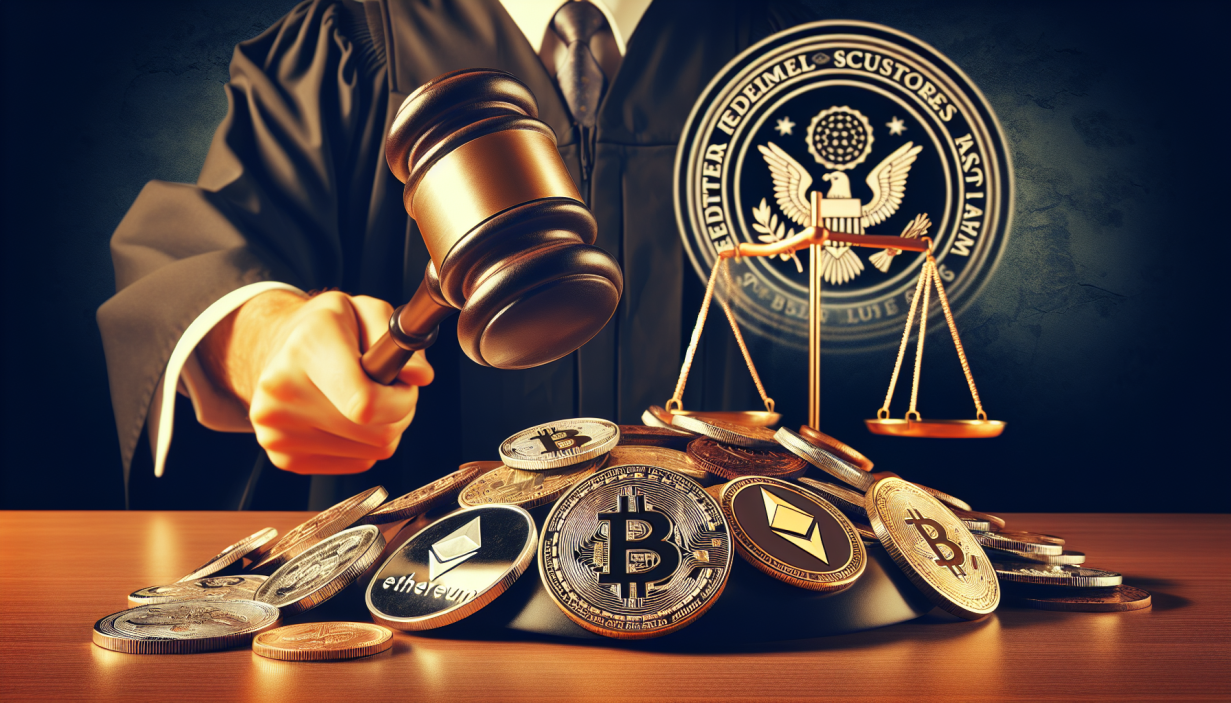Recent Judge Ruling on Coinbase Sides with SEC
The US justice's ruling shakes up Coinbase and Ripple
March 28, 2024 12:23 PM
Reading time: 2 minutes, 3 seconds
TL;DR A recent court ruling by Judge Katherine Failla in the Coinbase vs. US SEC lawsuit marked a significant development, siding partially with the SEC. This decision contrasts with Judge Torres' previous ruling in the Ripple vs. SEC case, emphasizing the complexities of crypto regulations and secondary market transactions.

In a landmark decision, Judge Katherine Failla has made a ruling that could have a profound impact on the way cryptocurrency transactions, especially those on secondary markets, are viewed in the eyes of the law.
This comes amidst the ongoing legal confrontation between Coinbase, Ripple, and the US Securities and Exchange Commission (SEC), which is proving to be a pivotal moment in crypto regulatory discussions.
A Clash of Judicial Opinions
The heart of the matter lies in the contrasting rulings by Judge Failla and Judge Analisa Torres. Judge Torres, in the Ripple Vs SEC case, posited that secondary sales of XRP could not be deemed as investment contracts or unregistered securities, primarily because the buyers in such transactions are often unaware of whom they are purchasing from.
This perspective, however, was directly challenged by Judge Failla's decision in the Coinbase lawsuit, where she stated, "Contrary to Defendants' assertion, whether a particular transaction in a crypto-asset amounts to an investment contract does not necessarily turn on whether an investor bought tokens directly from an issuer or, instead, in a secondary market transaction."
"An Institutional Buyer knowingly purchased XRP directly from Ripple pursuant to a contract, but the economic reality is that a Programmatic Buyer stood in the same shoes as a secondary market purchaser who did not know to whom or what it was paying its money." - Judge Torres
Implications for Coinbase and Ripple
This ruling is particularly significant for Coinbase and Ripple, as it suggests that transactions in crypto assets on secondary markets could potentially be considered investment contracts, thus subject to SEC regulation. Former SEC enforcement chief John Reed Stark highlighted this as a major blow to both entities, emphasizing the divergence from Judge Torres' reasoning.
The Road Ahead
As a result of Judge Failla's ruling, Coinbase's Staking Program has been classified as engaging in the unregistered offer and sale of securities.
While part of the lawsuit related to Coinbase acting as an unregistered brokerage was dismissed, the case is set to move forward to discovery and trial. This development underscores the ongoing legal complexities surrounding cryptocurrency and the need for clear regulatory frameworks.
A Dynamic Regulatory Landscape
The contrasting rulings between Judge Failla and Judge Torres highlight the dynamic and evolving nature of cryptocurrency regulation.
As the legal battles continue, the outcomes of these cases could set important precedents for how crypto transactions, particularly those on secondary markets, are regulated in the future.



